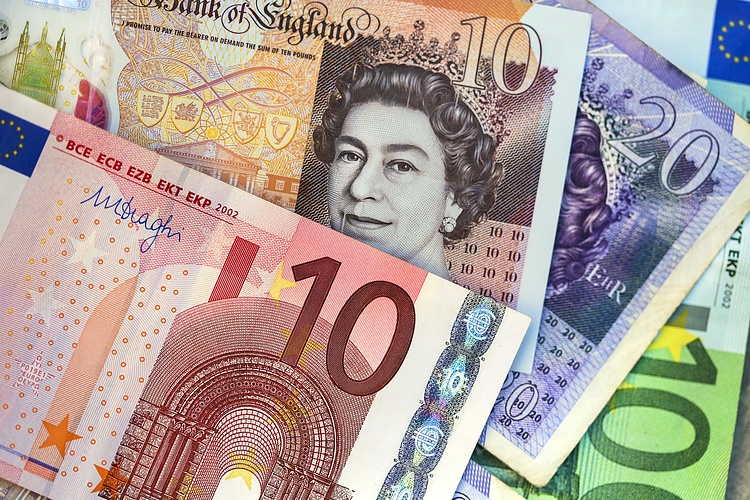- EUR/GBP continues to lose ground following the lower-than-expected PMI data from both economies.
- The UK Manufacturing PMI fell to 51.5 in September, down from 52.5 in August, missing the market expectation of 52.3.
- The HCOB Eurozone Composite PMI fell to 48.9 in September, down from August’s 51.0 and marking an eight-month low.
EUR/GBP extends its winning streak for the fourth successive day following the lower-than-expected Purchasing Managers Index (PMI) data from both the Eurozone and the United Kingdom (UK). The EUR/GBP cross trades around 0.8360 during the European hours on Monday.
The preliminary S&P Global/CIPS UK Manufacturing Purchasing Managers’ Index (PMI) fell to 51.5 in September, down from 52.5 in August, missing the market expectation of 52.3. Similarly, the Services PMI declined to 52.8 in September from 53.7 in August, also below the market forecast of 53.5.
Chris Williamson, Chief Business Economist at S&P Global Market Intelligence said “A slight cooling of output growth across manufacturing and services in September should not be seen as too concerning.”
In the Eurozone, the HCOB Composite PMI fell to 48.9 in September, down from August’s 51.0 and well below the expected 50.6, marking an eight-month low. The Services PMI dropped sharply to 50.5 from 52.9 in August, significantly underperforming the market forecast of 52.4 and hitting a seven-month low. Meanwhile, the Manufacturing PMI declined further, falling from 45.8 in August to 44.8 in September, missing the expected 45.6 and reaching a nine-month low.
On Friday, European Central Bank (ECB) President Christine Lagarde stated that monetary policy needs to stay adaptable in a constantly evolving world. Although the core objectives of monetary policy, particularly price stability, remain the same, central banks must maintain flexibility to respond to the challenges of a swiftly changing global economy, according to Euronews.
Economic Indicator
S&P Global/CIPS Manufacturing PMI
The Manufacturing Purchasing Managers Index (PMI), released on a monthly basis by both the Chartered Institute of Procurement & Supply and S&P Global, is a leading indicator gauging business activity in the UK’s manufacturing sector. The data is derived from surveys of senior executives at private-sector companies. Survey responses reflect the change, if any, in the current month compared to the previous month and can anticipate changing trends in official data series such as Gross Domestic Product (GDP), industrial production, employment and inflation. The index varies between 0 and 100, with levels of 50.0 signaling no change over the previous month. A reading above 50 indicates that the manufacturing economy is generally expanding, a bullish sign for the Pound Sterling (GBP). Meanwhile, a reading below 50 signals that activity among goods producers is generally declining, which is seen as bearish for GBP.
Read more.
Last release: Mon Sep 23, 2024 08:30 (Prel)
Frequency: Monthly
Actual: 51.5
Consensus: 52.3
Previous: 52.5
Source: S&P Global
Read the full article here

